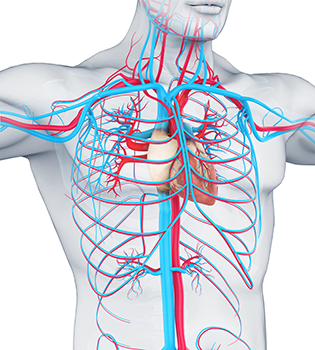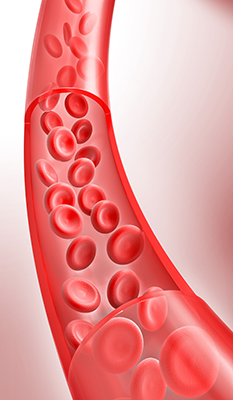Our Services
New Technologies
Cardiovascular Services
Outpatient Consulting in Office include:
- Chest pain evaluation
- Coronary artery disease
- Peripheral vascular disease
- Congenital heart disease
- Congestive heart failure
- Cardiac arrhythmias
- Congenital heart defects
- Obesity and weight management
- Risk and lifestyle modification
Inpatient Diagnostic Procedures and Treatment
- Heart catheterization
- Interventional cardiology – including stents, balloons and angioplasty of vessels
- Peripheral vascular intervention
- Diagnostic electrophysiology
- Interventional Cardiac Electrophysiology
- Catheter ablation
- Loop monitor implantation
- Temporary pacing
- Pacemaker implantation, including biventricular pacemakers
- Defibrillator (ICD) implantation
- Lead extraction
Non-Invasive Diagnostic Services
- EKG
- Treadmill stress testing
- Nuclear stress imaging
- Echocardiography
- Stress Echocardiograms
- Vascular ultrasound imaging
- Holter monitoring
- Cardiac event recording
- Pacemaker follow-up and monitoring
- ICD follow-up and monitoring
Nuclear Medicine Stress Testing
 A nuclear medicine stress test to image your heart under stress (while exercising) and at rest. The injection of a radioactive “tracer” allows the heart muscle to be seen on the Nuclear Medicine camera. This test is useful in diagnosing coronary artery disease, the presence of blockages in the coronary arteries that supply oxygen-rich blood to the heart muscle.
A nuclear medicine stress test to image your heart under stress (while exercising) and at rest. The injection of a radioactive “tracer” allows the heart muscle to be seen on the Nuclear Medicine camera. This test is useful in diagnosing coronary artery disease, the presence of blockages in the coronary arteries that supply oxygen-rich blood to the heart muscle.
Your heart is scanned twice, once before any exercise and again after stress (exercise). You will be positioned next to a special detector called a gamma camera. The camera does not produce radiation. This camera will revolve around your chest and obtain images of your heart. The radioactive tracer used is administered in a very small and safe amount.
Echocardiography
 A 2D echo is a painless non-invasive procedure performed mainly in the Doctors office or in a hospital setting. An echo is an ultrasound test that uses sound waves to evaluate the structures of the heart. The test must be evaluated by a cardiologist to determine the condition of the chambers and heart valves and other structures of the heart. This test is performed by an echo technologist. Upon arrival for testing, the tech will take you to a room where you will be asked to disrobe from the waist up and lie down on a bed in the supine position (on your back). Three electrodes will be placed on the patient’s chest area and wires will be attached for EKG and heart rate monitor. The patient will then be positioned on his or her left side to begin the test. Most of the test will be done in this position. The other positions will be the supine (back) and right side if necessary. The total time of the test will vary. Usually forty-five minutes is allowed to complete each study. When the test is over, the technologist will wipe off all the ultrasound gel and ask the patient to put on their clothes. The reading is usually completed within 48 hours and results sent to the primary care physician but within a week.
A 2D echo is a painless non-invasive procedure performed mainly in the Doctors office or in a hospital setting. An echo is an ultrasound test that uses sound waves to evaluate the structures of the heart. The test must be evaluated by a cardiologist to determine the condition of the chambers and heart valves and other structures of the heart. This test is performed by an echo technologist. Upon arrival for testing, the tech will take you to a room where you will be asked to disrobe from the waist up and lie down on a bed in the supine position (on your back). Three electrodes will be placed on the patient’s chest area and wires will be attached for EKG and heart rate monitor. The patient will then be positioned on his or her left side to begin the test. Most of the test will be done in this position. The other positions will be the supine (back) and right side if necessary. The total time of the test will vary. Usually forty-five minutes is allowed to complete each study. When the test is over, the technologist will wipe off all the ultrasound gel and ask the patient to put on their clothes. The reading is usually completed within 48 hours and results sent to the primary care physician but within a week.
Vascular Studies

Routinely Performed Vascular Procedures At Delaware Cardiovascular Associates
- Abdominal Aorta Duplex:
An ultrasound of the abdominal aorta to check for abdominal aortic aneurysm (AAA) and atherosclerotic plaque. - Carotid Duplex:
An ultrasound of the carotid and vertebral arteries to check for narrowing or occlusion of the arteries. - Upper & Lower Arterial Duplex:
An ultrasound of the arteries in the arms and legs to detect peripheral arterial disease (PAD) or clots. - Upper & Lower Venous Duplex:
An ultrasound of the veins in the arms and legs to detect deep vein thrombosis (DVT) , i.e., blood clots, and/or phlebitis. - Upper & Lower Pulse Volume Recordings (PVR) w/ Wrist Brachial Index (WBI) And Ankle Brachial Index (ABI):
Blood Pressure test to evaluate the circulation of blood in the arteries of the arms and legs. This test is used to test for peripheral arterial disease (PAD).
Arrhythmia Services

Pacemaker - Management/Follow up service. Offered in clinic or home remote monitoring
Defibrillator Management/Follow up service. In office clinic or home remote monitoring
Tilt Table Testing-Syncopal Evaluation
Holter Monitoring 24 and 48 hours, to evaluation Palpitations, Dizziness, Tachycardia
Event Monitoring Service – up to 21day for Any Arrhythmias
Coumadin Service

Coumadin (warfarin) is an anticoagulant (blood thinner) used to reduce the formation of blood clots. Coumadin is used to prevent heart attacks, strokes, and blood clots in arteries and veins
OUR PROMISE
- Minimal waiting
- Blood taken from “fingerstick” only
- Instant results and dosage adjustment
- On- and Off-site patient education and support
- Highly trained personnel
MEDICATION GUIDELINES
- Post the medication schedule on your refrigerator so that is easy for you to remember when to take the medications
- Do not increase, decrease, or stop taking medications without a doctor’s advice
- Never double up to catch up on a missed dose
- Consult your doctor before taking over the counter medications
- Take only the medication prescribed for you at the time you leave the hospital
- Have your prescription refilled before it is empty
- Use a Medication Schedule to keep track of your daily doses
- Keep a list of your current medications with you at all times
